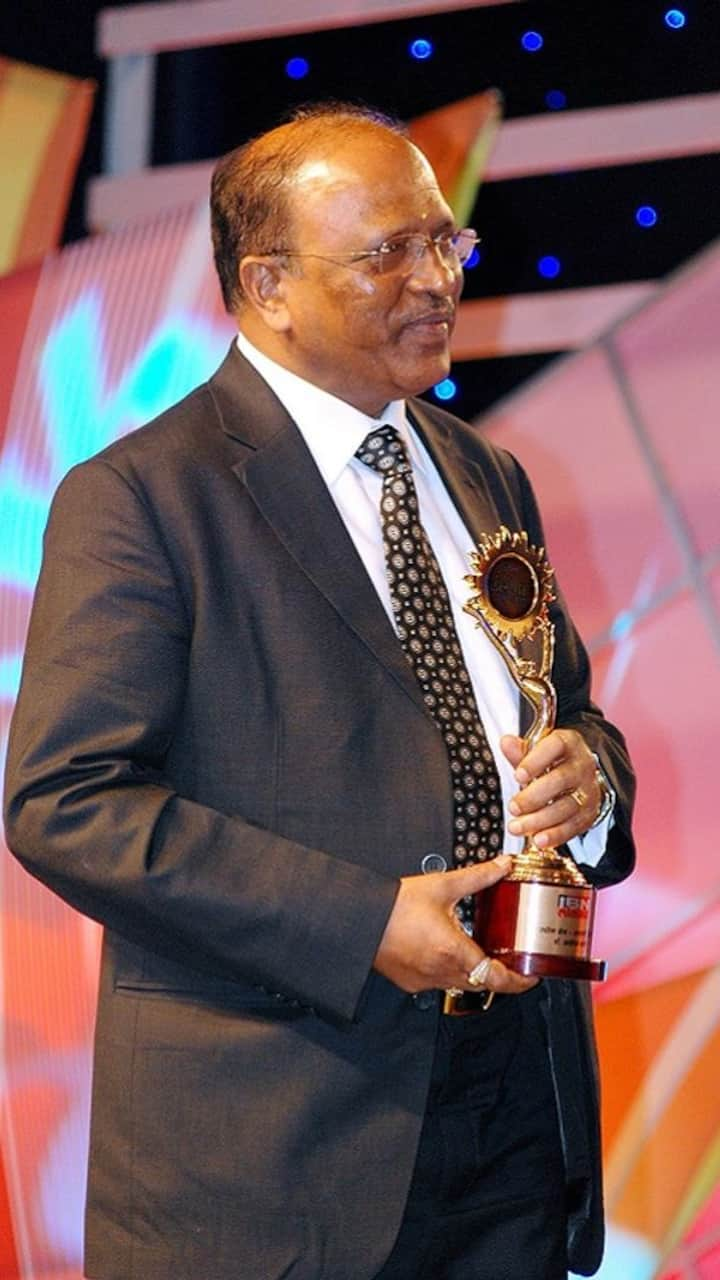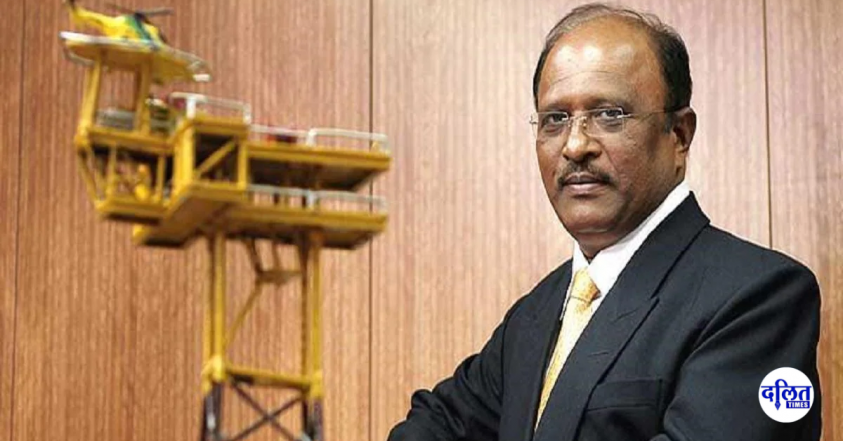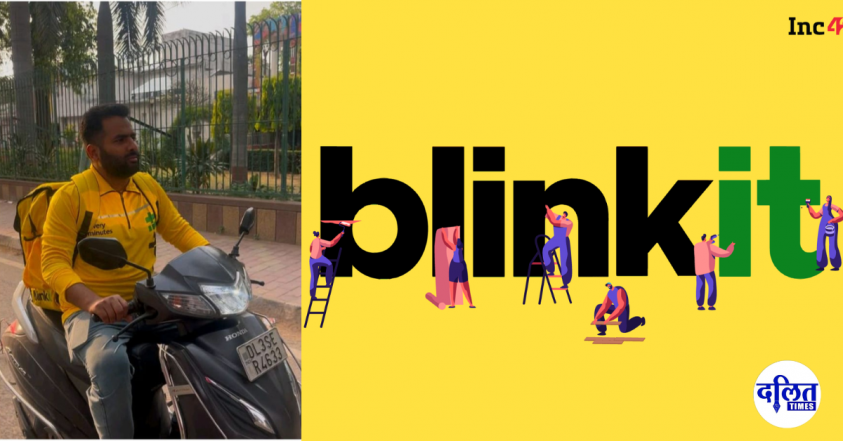Early Life and Challenges
Ashok Khade was born in 1956 in Ped, a small and underdeveloped village tucked away in Maharashtra’s Sangli district. He was born into a Mahar Dalit family historically oppressed community under India’s brutal caste hierarchy. His very birth location and caste identity preordained him, in society’s eyes, to a life of marginality. But what Ashok Khade made of that reality is a testament to human grit, the transformative power of education, and an unshakable belief in one’s own potential.
His father, Dagadu Tayappa Khade, migrated to Mumbai and earned a modest living as a mocha a caste-assigned role for Dalits in the urban underbelly, considered ritually “impure” by upper-caste orthodoxy. Meanwhile, his mother, Tanubai, remained in the village, doing arduous agricultural work, often returning home with more wounds than wages. Survival was the family’s only currency. They often went without proper meals, surviving on watery rice gruel or a lone piece of roti split among many mouths.
Also Read : Unheard, Unattended, Unjust: The Death of a minor Girl in Bihar Exposes a Rotting System
Ashok was sent to live with his father in Mumbai during his early years. There, in the teeming chawls of Sion-Koliwada, the child Ashok Khade confronted a new terrain of hardship: leaking tin roofs, open drains that gushed during monsoons, and the stench of urban squalor. But what stood out even more than physical deprivation was the psychological violence—caste-based insults, exclusion, and systemic invisibility.
Yet, despite being surrounded by degradation, young Ashok refused to internalize defeat. He became a top performing student in his municipal school, astonishing teachers with his discipline and brilliance especially in Sanskrit, the sacred language of the upper castes. His handwriting was so elegant that it became the school’s de facto calligraphy model. He studied under streetlights, read with the help of kerosene lamps, and often memorized entire lessons to revise in the dark, knowing that the candle wouldn’t last.
Denied access to temples, shunned at water wells, and routinely subjected to verbal slurs, Ashok Khade nevertheless cultivated a resilience born not just of ambition, but of necessity. He knew education was his only escape. In the school of survival, he was already a graduate by the time most privileged children first faced failure.
Professional Journey: From Dry Docks to the Boardroom
In 1973, fresh out of school, Ashok Khade joined Mazagon Dock Shipbuilders Ltd. as a technical apprentice. For a young Dalit, this was a dream job—a foothold into one of India’s top public sector shipyards, responsible for building naval warships and submarines.
Over the next 20 years, Khade’s journey at Mazagon Dock mirrored the slow, methodical rise of a man determined to prove his mettle in a system rigged against him. He learned every aspect of shipbuilding including welding, marine hydraulics, structural fabrication, and quality control. He spent years working in dry docks, often smeared in grease, testing steel tolerances, and mastering submarine modules. While others took promotions for granted, Ashok Khade earned each one with a mix of technical brilliance and tireless dedication.
His big break came in 1984 when he was selected for a submarine quality control training program in West Germany. For a Dalit technician with humble origins, this was nothing short of revolutionary. In the land of industrial precision, Ashok Khade not only held his own but thrived. He returned to India with sharpened skills, a widened worldview, and a belief: “Technology has no caste.”
Yet, the glass ceiling at Mazagon Dock loomed large. While upper-caste engineers glided up the hierarchy, Khade remained boxed into technical roles. By the 1990s, as India introduced and implemented liberalization its economy, he began to envision something audacious: building his own marine engineering firm.
In 1995, along with his brothers Datta and Suresh, he co-founded DAS Offshore Engineering Pvt. Ltd. the name bearing their initials, their shared grit, and a quiet defiance of caste-bound destiny. They started with nothing but savings, courage, and sweat. No venture capital, no godfathers, no old-boy networks only skill and a burning will.

Their first client? Mazagon Dock. The same employer where Khade had spent two decades, now offered him a fabrication contract, a nod to his expertise. That project set off a chain reaction, and DAS Offshore was born bootstrap by bootstrap.
Achievements and Contributions: Engineering with a Purpose
Under Ashok Khade’s leadership, DAS Offshore rose meteorically from a modest fabrication unit in Navi Mumbai to one of India’s most respected marine and offshore infrastructure companies. It broke into sectors long monopolized by industrial dynasties and ex-defense elites.
From offshore platform fabrication to structural erection, submarine retrofitting to pipeline construction, DAS handled projects for energy behemoths like ONGC, HPCL, IOCL, L&T, and Reliance. The firm’s trademark? Precision. Punctuality. Professionalism.
The company eventually employed more than 4,500 people across fabrication yards in Maharashtra and Gujarat. A high point came when DAS Offshore was entrusted with constructing Mumbai’s first-ever skywalk at Bandra East—a leap from marine to urban infrastructure, from docks to public spaces.
Approach to Meritocracy and Dalit Identity
Ashok Khade’s views on caste and enterprise are nuanced—and sometimes, controversial. Only about 1% of DAS’s workforce belongs to Scheduled Castes. He has been clear: he does not believe in tokenism or caste-based preferential hiring. Instead, he emphasizes competence, discipline, and integrity as the criteria for employment.
Also Read : DICCI: Fighting Caste with Capital, Building a New Dalit Economy
This has earned him both admiration and critique. But Khade’s deeper intervention lies not in representation for the sake of numbers but in building capacity at the base. He channels his wealth into transforming Ped—his forgotten village—into a hub of opportunity.
His contributions include:
- A hospital providing accessible healthcare to surrounding villages.
- A school complex with digital classrooms and vocational training labs.
- An engineering college, offering degrees in disciplines traditionally out of reach for rural Dalits and Adivasis.
In interviews, Khade often reiterates: “Real empowerment is not about jobs in my company. It’s about producing hundreds of skilled, confident youth who can build their own enterprises or lead anywhere they go.”
His legacy-building is strategic, not symbolic. He is crafting an ecosystem—where Dalit children no longer inherit inferiority but inherit institutions.
Mentoring and Motivating the Next Generation
Ashok Khade does not believe in being the lone star. He is obsessed with constellation-building. He regularly visits engineering colleges, Dalit business summits, and skill workshops—not as a guest of honor, but as a mentor who remembers every hungry night, every insult, and every locked door.
His speeches are not platitudes—they are blueprints. He talks about the dignity of labor, the importance of financial prudence, and the need to master your craft. He offers scholarships, internships, and apprenticeships for first-generation learners. His favorite quote? “You can’t dismantle a system unless you first understand how it works.”
Legacy and Impact: A Blueprint for Liberation
Ashok Khade’s story is not just a rags-to-riches tale. It is a redefinition of success itself—where wealth is measured not in numbers, but in how many lives one transforms, how many ceilings one shatters, and how many chains one breaks.
Also Read : Stacks of Shame: Impeachment Motion Against Justice Varma Signals a Historic Legal Reckoning
He is a Dalit tycoon, yes. But more importantly, he is a Dalit institution-builder, a mentor of resilience, and a practitioner of Ambedkar’s dream: social justice through education, entrepreneurship, and dignity.
In a country where less than 0.1% of industrialists come from Scheduled Castes, Khade’s journey isn’t just inspiring—it’s revolutionary. It tells India, loudly and clearly: “Caste has no place in competence. Talent can rise from any basti, any village, any name—if the doors are not barred shut.”
And perhaps that is Ashok Khade’s greatest gift: not just the factories he built or the contracts he won, but the belief he instills—that Dalit excellence is not an anomaly. It is a reality. It is the future.
Bindu Ammini/Advocate/Dalit Feminist



